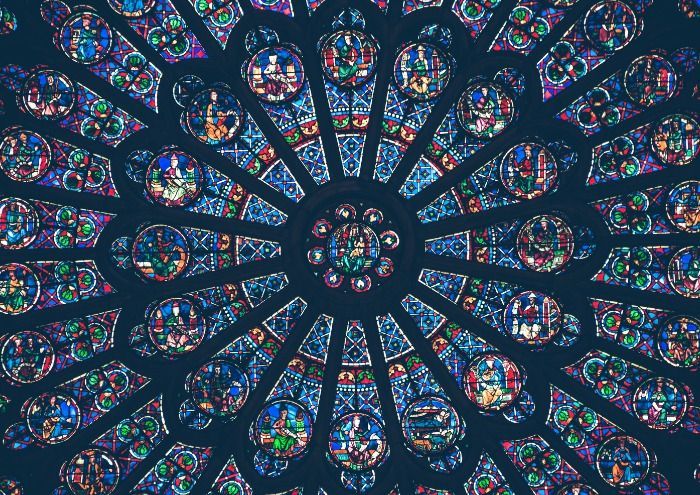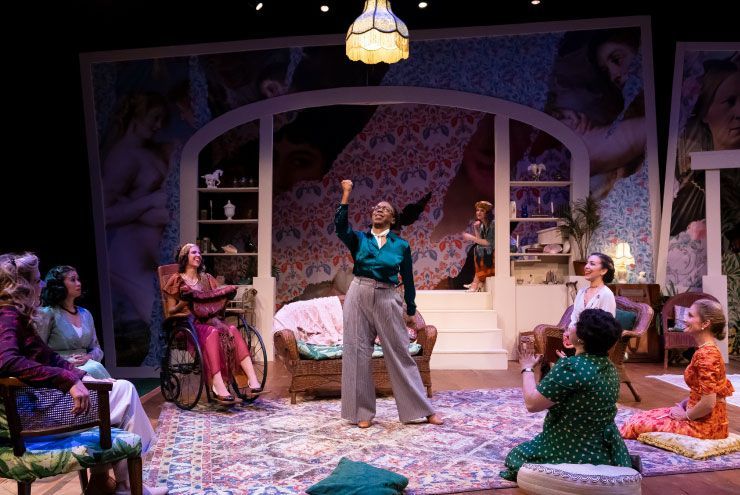By Dr. Laura McGuire
For as long as I can remember, there’s been a drumming in my heart—a subtle pulse asking me to listen, inviting me to hear its message. This sound has, at times, been a dull murmur, something I can drown out with the distractions of life. At other times, it is a profound drumbeat, silencing everything else. This drumming is the call to ministry, something I have long ignored or made excuses to avoid.
Two years ago, when I moved back to the Florida town where I spent my adolescence, I decided I could no longer deny this calling; I needed to explore this path fully. I started by meeting with my local Methodist minister, and he shared with me the steps in the Methodist church that I could take to further discern my call. While I looked into some of them, I decided to instead focus my energy on the new business I was simultaneously starting. Once again, I shelved my calling.
The next year, I yet again felt unsettled on my path. I loved the work I was doing with my business, the National Center for Equity and Agency, but I wanted it to be more than a for-profit venture; I wanted it to be a way to serve God—through sexual violence prevention, queer inclusion, and healing people from the bonds of sexual shame and misinformation. I knew that this was what God herself put me on Earth to do. So how could I bring this same work and passion to a pastoral role?
As a young child, I was fascinated by the female pastor in my Methodist church. But as a teen, my mother moved toward Evangelical churches and I converted to Catholicism. Soon, there were no female ministers in sight. At the time, I explored becoming a religious sister, but still felt it wasn’t the place I was supposed to serve God. I was called to do work outside of what the sisters apostolates provided, though still in the same manner of complete and all-encompassing service.
Now here I was, after journeying through many churches and faith practices, called once again to have a life in complete surrender to God and his children. But my identity had evolved since I first began to explore my calling—I had come to peace with my queerness and non-binary identity. I had gleaned so much from my studies of yogic philosophy, Dianic paganism, and Chassidic Judaism, and couldn’t discount any of the truths those paths had revealed. I interviewed with Unitarian Universalist, United Church of Christ, and Methodist pastors to discuss what each church offered in support to those called to ministry. Since I had attended Methodist churches for most of my life—and they seemed to offer the most opportunities for growth—I decided to embark down that road first.
As I completed each step—the interviews, the references, the letters of recommendation, and the retreat—I kept feeling like something was missing. My sense of purpose was getting lost in the bureaucracy. Was ministry just a list of boxes to check to gain a committee’s approval? Who were they to say who is and how we are called? The Methodist guidelines still stated that openly LGBTQ people couldn’t be ordained, though that was supposed to be changing. The fees were a huge barrier to entry—when the retreat organizers started explaining the financial load that would be required to complete the coursework to become a pastor, plus the below-poverty-level starting salary, it all seemed like a huge leap from what Christ was calling me to do.
Still, following my calling’s direction, I asked my small group if I could lead them through an eight-week series on social justice in Christianity. When I inquired if I could share this series with small groups throughout the church, however, I was met with silence from the administration and caution that “not everyone in the church is ready to talk about these things.”
I pressed on, researching churches that were open to the type of teachings I wanted to share. One unexpected domination that I’d yet to formally explore caught my attention—the Quakers.
Through watching videos, listening to podcasts, and pouring over articles about this faith community, I experienced what Quakers call a “convincement.” I like to think of it similarly to the way Muslims view a conversion to Islam—a reversion. I was not switching from one belief to another, I was simply coming home to the one faith that affirmed and challenged everything I had believed since childhood. I found that many fellow sexologists work in Quaker Schools and belong to the Society of Friends (the true name for the Quaker faith).
Quakers were among the first to make sure that women could minister and to affirm LGBTQ people in their identities. They hate war, any form of slavery, injustice, hierarchies, excess, greed, and selfishness, and make peace, simplicity, equality, honesty, and personal relationships with God their focus. Anyone can preach as they feel called at any meeting (their service or mass). Instead of some people being given certain man-ordained gifts and privileges, everyone is called to be a minister at all times. No one is above or below the other and all are called to make their personal and professional work their ministry.
Finding my vocation as a Quaker sexologist minister felt like coming out. Suddenly, the culmination of all my seemingly fragmented experiences made sense. This is who I’ve always been. I’m not odd or alone in my beliefs; they have existed in an organized religion for hundreds of years! I no longer have to worry about if being a sex-positive, queer, non-binary Christian is a compound oxymoron. In addition to finding my spiritual and professional home, I have found the tools to grow and challenge myself that I’ve long searched for.
Being a minister should not mean crushing financial debt, appealing to hierarchical bureaucracy, or special privileges. It should mean challenging yourself to be authentically humble in your walk of faith, of seeing God in every person, and living sacramentally in every moment. In this way, marching in Pride, teaching my students, and preparing a meal for my children are all sacraments. I can’t wait to see where God leads me next, for I know here I am truly walking in the fullness of who I was created to be.







